★★★
“Haywire. With baggage”
 It has been a rough year for action heroines at the cinema. Actually, it has been a rough year for everyone everywhere, thanks to COVID-19. But for the purposes of this site, we have been sadly lacking the kind of tentpole releases which we usually write about over the summer. Wonder Woman 1984, for example, was to have come out in June. But with all venues bar the few remaining drive-ins closed, that was moved first to August, then October [and I don’t know about you, but I’m still not comfortable with the concept of cinema going]. Disney’s live-action version of Mulan opted to bypass theatres all together, and will instead be released on their streaming service.
It has been a rough year for action heroines at the cinema. Actually, it has been a rough year for everyone everywhere, thanks to COVID-19. But for the purposes of this site, we have been sadly lacking the kind of tentpole releases which we usually write about over the summer. Wonder Woman 1984, for example, was to have come out in June. But with all venues bar the few remaining drive-ins closed, that was moved first to August, then October [and I don’t know about you, but I’m still not comfortable with the concept of cinema going]. Disney’s live-action version of Mulan opted to bypass theatres all together, and will instead be released on their streaming service.
Poor Ava is suffering a similar fate, going straight to video-on-demand in most places – except, bizarrely, in Hungary, according to Wikipedia. Certainly, given its rather high-powered cast, you would have expected better for this, in a normal world. It still, however, probably ranks as the biggest-profile action heroine movie of the year – at least for a few days until Mulan shows up. To be honest, though, it doesn’t do enough to justify that position. While Chastain is very good in the central role, it’s burdened down by too much drama to be effective, and comes over mostly like a soap-opera adaptation of Haywire.
Ava (Chastain) has overcome a troubled past to become an assassin for a murky intelligence agency, working for Duke (Malkovich). But she is increasingly questioning her work – indeed, literally doing so, having an unnerving habit of asking her targets why someone wants them killed. After a supposedly stealth operation in Saudi Arabia becomes not-so-stealthy, Duke’s protege, Simon (Farrell), takes matters into his own hands, bypassing Duke to put out a kill order on Ava. She’s none too pleased by this, obviously, and seeks to turn the tables on him.
 The above paragraph is lean, mean and would have made for a perfectly decent movie. However, the script apparently decides it’s not enough – perhaps Chastain wanted something into which she could sink her dramatic teeth. For we get a whole slew of subplots and conflicts thrown on top. These include, but are not limited, to the following. Ava is a recovering alcoholic. Ava is estranged from her sister (Weixler). Ava had a previous relationship with her sister’s boyfriend, and there are still feelings there. He has a gambling problem. Ava caught her father having an affair, which led to her leaving home. It also caused Ava to break ties with her mother, played by Geena Davis.
The above paragraph is lean, mean and would have made for a perfectly decent movie. However, the script apparently decides it’s not enough – perhaps Chastain wanted something into which she could sink her dramatic teeth. For we get a whole slew of subplots and conflicts thrown on top. These include, but are not limited, to the following. Ava is a recovering alcoholic. Ava is estranged from her sister (Weixler). Ava had a previous relationship with her sister’s boyfriend, and there are still feelings there. He has a gambling problem. Ava caught her father having an affair, which led to her leaving home. It also caused Ava to break ties with her mother, played by Geena Davis.
It’s all too much, dragging down the plot. Say what you like about Haywire, you never cared that Mallory Kane didn’t have a compelling history, for the film was too busy moving forward to look back. This one spends too much time creating, and then having to tidy up, all these loose ends from Ava’s past. I just wasn’t interested. Though those scenes did give me time to imagine ways this could have worked better. It would have been way cool if, at the end, Davis had thrown off her motherly trappings, revealed she also used to be a government assassin [perhaps actually being Samantha Caine, Geena’s character from The Long Kiss Goodnight], and teamed up with Ava to take down Simon.
This movie writing thing is a piece of cake.
Anyway, no such luck. The stuff between the drama is not bad, though I have some… questions about seeing the 66-year-old Malkovich going toe-to-toe with Farrell [ditto the 59-year-old Joan Chen and Chastain, actually] Or Farrell’s choice of facial hair and black turtleneck, which give him an unfortunate resemblance to 1930’s fascist, Sir Oswald Mosley. Or Simon’s decisions, including calling up Ava, apparently purely for taunting purposes, then going after her by himself, rather than first sending an escalating series of minions. If the movie hadn’t spent so much time dwelling on all of Ava’s drama, maybe we would have had time for such things.
Despite the relentless slagging delivered over the previous few paragraphs, this wasn’t actually too bad. The lead actress is the main reason why. If the film feels like a cinematic opposite of Anna, where the heroine was little more than a gun-carrying clothes-horse, Chastain is able to carry the weight of all those subplots, and deliver a complex character. She has played her share of action roles previously, perhaps most notably as far as we are concerned, in The Huntsman: Winter’s War, where we said she “kicks surprising amounts of butt.” Here, this aspect is front and centre, and she acquits herself well, even if her hand-to-hand combat against considerably larger opponents could have used a force equalizer or two more, for the sake of credibility.
Two scenes likely stand out. The first (and only!) attempt on her life by Simon’s minion, in a Paris park. And the final battle against him in her hotel bedroom [again, echoes of the similarly-located fight in Haywire between Gina Carano and Michael Fassbender]. Equal credit for those probably has to go to the ever-reliable Amy Johnston, star of Lady Bloodfight, who was Chastain’s stunt double for this. I should also mention Simon’s daughter, Camille, played by Diana Silvers. The ending, though somewhat conclusive, sets up a potential future Camille vs. Ava scenario, which I must confess, I would not mind seeing at all.
Overall, it is worth a look, though its insistence on trying to insert dramatic conflicts into a vehicle that doesn’t need them, becomes increasingly annoying as the movie progresses. When it’s not doing so, however, it is a slick, Bourne-like entity, providing a decent vehicle for Chastain to show off her action credentials. as well as her already-known acting skills. On that basis, it’s a shame I suspect it’s going to end up not being seen by too many people – thanks, Coronavirus! I hope that won’t put her off further exploration of our genre, as it can always use some more high-powered leads.
Dir: Tate Taylor
Star: Jessica Chastain, John Malkovich, Colin Farrell, Jess Weixler
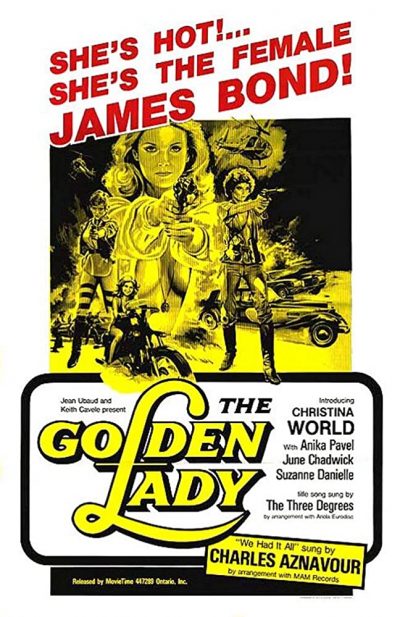 This British film occupies an odd middle ground between Ian Fleming and Jackie Collins – with a garnish of… The Village People? Yeah, there were points where I genuinely wondered what I’d strayed into. The titular female is Julia Hemingway (Skriver, under the rather laughable screen name of “Christina World”, which seems more like a dubious theme-park), who is a corporate espionage specialist. She accepts a commission to infiltrate the bidding for oil rights in a Middle Eastern country, on behalf of one of the four participants.
This British film occupies an odd middle ground between Ian Fleming and Jackie Collins – with a garnish of… The Village People? Yeah, there were points where I genuinely wondered what I’d strayed into. The titular female is Julia Hemingway (Skriver, under the rather laughable screen name of “Christina World”, which seems more like a dubious theme-park), who is a corporate espionage specialist. She accepts a commission to infiltrate the bidding for oil rights in a Middle Eastern country, on behalf of one of the four participants.




 This is certainly something of a novelty and/or a gimmick. But it’s none the less reasonably effective for it. Templeton – who is a woman, despite her first name, given to her after the character of Christopher Robin in the Winnie The Pooh books – suffered from polio as a young child. This left her with a badly damaged right leg; despite this, she pursued an acting career, and became a regular on soap The Young and the Restless for eight years. While I’ve seen a few disabled action heroes – Daredevil was blind – as far as disabled action heroines go, it’s basically her and Imperator Furiosa from Mad Max. And Charlize Theron wasn’t genuinely short an arm, so advantage Templeten. Though, sadly, she appears to have passed away in 2011.
This is certainly something of a novelty and/or a gimmick. But it’s none the less reasonably effective for it. Templeton – who is a woman, despite her first name, given to her after the character of Christopher Robin in the Winnie The Pooh books – suffered from polio as a young child. This left her with a badly damaged right leg; despite this, she pursued an acting career, and became a regular on soap The Young and the Restless for eight years. While I’ve seen a few disabled action heroes – Daredevil was blind – as far as disabled action heroines go, it’s basically her and Imperator Furiosa from Mad Max. And Charlize Theron wasn’t genuinely short an arm, so advantage Templeten. Though, sadly, she appears to have passed away in 2011. It has been a rough year for action heroines at the cinema. Actually, it has been a rough year for everyone everywhere, thanks to COVID-19. But for the purposes of this site, we have been sadly lacking the kind of tentpole releases which we usually write about over the summer. Wonder Woman 1984, for example, was to have come out in June. But with all venues bar the few remaining drive-ins closed, that was moved first to August, then October [and I don’t know about you, but I’m still not comfortable with the concept of cinema going]. Disney’s live-action version of Mulan opted to bypass theatres all together, and will instead be released on their streaming service.
It has been a rough year for action heroines at the cinema. Actually, it has been a rough year for everyone everywhere, thanks to COVID-19. But for the purposes of this site, we have been sadly lacking the kind of tentpole releases which we usually write about over the summer. Wonder Woman 1984, for example, was to have come out in June. But with all venues bar the few remaining drive-ins closed, that was moved first to August, then October [and I don’t know about you, but I’m still not comfortable with the concept of cinema going]. Disney’s live-action version of Mulan opted to bypass theatres all together, and will instead be released on their streaming service. The above paragraph is lean, mean and would have made for a perfectly decent movie. However, the script apparently decides it’s not enough – perhaps Chastain wanted something into which she could sink her dramatic teeth. For we get a whole slew of subplots and conflicts thrown on top. These include, but are not limited, to the following. Ava is a recovering alcoholic. Ava is estranged from her sister (Weixler). Ava had a previous relationship with her sister’s boyfriend, and there are still feelings there. He has a gambling problem. Ava caught her father having an affair, which led to her leaving home. It also caused Ava to break ties with her mother, played by Geena Davis.
The above paragraph is lean, mean and would have made for a perfectly decent movie. However, the script apparently decides it’s not enough – perhaps Chastain wanted something into which she could sink her dramatic teeth. For we get a whole slew of subplots and conflicts thrown on top. These include, but are not limited, to the following. Ava is a recovering alcoholic. Ava is estranged from her sister (Weixler). Ava had a previous relationship with her sister’s boyfriend, and there are still feelings there. He has a gambling problem. Ava caught her father having an affair, which led to her leaving home. It also caused Ava to break ties with her mother, played by Geena Davis.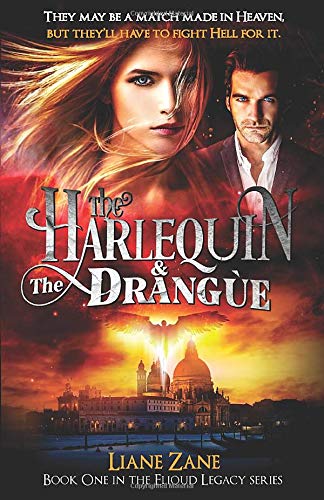
 Goodreads author Liane Zane is a published novelist under her real name, but has adopted this pen name for her new venture into paranormal romance, beginning with this opener for a projected series. She and I are Goodreads friends, so I accepted her offer of a free review copy, with no guarantee of a favorable one. PNR as such isn’t typically my thing (nor is “romance” in general, in the book trade sense); but both supernatural fiction and action adventure are, and I could easily approach this book in those terms. I’m also a sucker for a well-drawn action heroine who kicks butt and takes names –and here we have not just one but three such ladies.
Goodreads author Liane Zane is a published novelist under her real name, but has adopted this pen name for her new venture into paranormal romance, beginning with this opener for a projected series. She and I are Goodreads friends, so I accepted her offer of a free review copy, with no guarantee of a favorable one. PNR as such isn’t typically my thing (nor is “romance” in general, in the book trade sense); but both supernatural fiction and action adventure are, and I could easily approach this book in those terms. I’m also a sucker for a well-drawn action heroine who kicks butt and takes names –and here we have not just one but three such ladies. I remember how the first series of Killing Eve blew my socks off, and was completely unlike anything else on television. The second series fell short, but that was unsurprising – how could it be otherwise? – and there was still the chance for it to mount a course correction and recover. This third installment, however, has if anything accelerated the downward trend. What was once must-see television has become something which sits on in the background, typically as I surf the Internet on my phone. I can’t think of another series which has collapsed in such a remarkably brief time-frame.
I remember how the first series of Killing Eve blew my socks off, and was completely unlike anything else on television. The second series fell short, but that was unsurprising – how could it be otherwise? – and there was still the chance for it to mount a course correction and recover. This third installment, however, has if anything accelerated the downward trend. What was once must-see television has become something which sits on in the background, typically as I surf the Internet on my phone. I can’t think of another series which has collapsed in such a remarkably brief time-frame. Though just called “Brian Cox” on the book, it’s probably wise to begin by distinguishing the author here from his more famous namesakes, both the actor and the “rock-star physicist.” That said, this is a brisk if not particularly memorable spy novel. The main outstanding feature is that the heroine is neither American nor British, but Chinese. Rather odd to be reading this very positive portrayal of Communist state security personnel, during the protests in Hong Kong.
Though just called “Brian Cox” on the book, it’s probably wise to begin by distinguishing the author here from his more famous namesakes, both the actor and the “rock-star physicist.” That said, this is a brisk if not particularly memorable spy novel. The main outstanding feature is that the heroine is neither American nor British, but Chinese. Rather odd to be reading this very positive portrayal of Communist state security personnel, during the protests in Hong Kong. To be charitable (pun not intended), this might perhaps have come across better if I were familiar with the “Caribbean Adventure” series by the same author, featuring the exploits of ex-marine
To be charitable (pun not intended), this might perhaps have come across better if I were familiar with the “Caribbean Adventure” series by the same author, featuring the exploits of ex-marine  This originally was going to be included in my preview for the year, since it showed up in the IMDb with a release date of January 7, 2020. But on Googling, I found it already had seeped out on Tubi, a free movie channel. At time of writing, this would appear to be the first review written about it anywhere, though it should be considered less a preview than a dire advance warning. Indeed, I could condense the whole thing into one word: “Don’t.” For a more pedestrian, poorly-executed excuse for an action film, you’d be hard pushed to find. Right down to the initials of its lead character and the tag-line on the poster (right), this possesses aspirations it fails miserably to achieve. On the plus side, 2020 can really only go up from here.
This originally was going to be included in my preview for the year, since it showed up in the IMDb with a release date of January 7, 2020. But on Googling, I found it already had seeped out on Tubi, a free movie channel. At time of writing, this would appear to be the first review written about it anywhere, though it should be considered less a preview than a dire advance warning. Indeed, I could condense the whole thing into one word: “Don’t.” For a more pedestrian, poorly-executed excuse for an action film, you’d be hard pushed to find. Right down to the initials of its lead character and the tag-line on the poster (right), this possesses aspirations it fails miserably to achieve. On the plus side, 2020 can really only go up from here.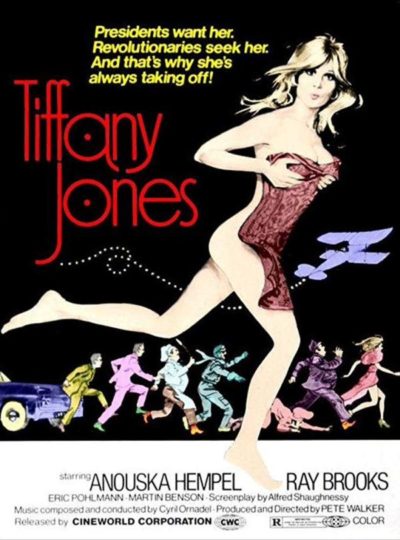 Fashion model Tiffany Jones (Hempel) finds herself dropped into the middle of international intrigue, after President Boris Jabal (Pohlmann), leader of the Eastern European state of Zirdana, takes a shine to her during a state visit to Britain. It’s supposed to be a trade negotiation, but is really to allow Jabal to broken an arms deal with some shady Americans. Her meeting the President brings her to the attention of two factions of Zirdanian rebels.
Fashion model Tiffany Jones (Hempel) finds herself dropped into the middle of international intrigue, after President Boris Jabal (Pohlmann), leader of the Eastern European state of Zirdana, takes a shine to her during a state visit to Britain. It’s supposed to be a trade negotiation, but is really to allow Jabal to broken an arms deal with some shady Americans. Her meeting the President brings her to the attention of two factions of Zirdanian rebels.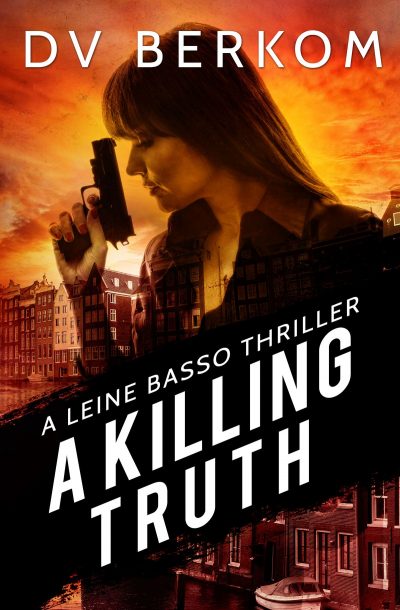 Leine (short for Madeleine) Basso quit her job as a somewhat-sanctioned government assassin, after realizing her boss was using her to carry out off-book, non-sanctioned ops for his personal gain. Oh, and he also tricked her into killing her lover, and b Initially working in private security, she is hired on a reality show, following the murder of a contestant (Book 1: Serial Date) by a serial killer out to make a point. Leine’s daughter is abducted, and it turns out the perpetrator is a shadow from her past, with a grudge.
Leine (short for Madeleine) Basso quit her job as a somewhat-sanctioned government assassin, after realizing her boss was using her to carry out off-book, non-sanctioned ops for his personal gain. Oh, and he also tricked her into killing her lover, and b Initially working in private security, she is hired on a reality show, following the murder of a contestant (Book 1: Serial Date) by a serial killer out to make a point. Leine’s daughter is abducted, and it turns out the perpetrator is a shadow from her past, with a grudge.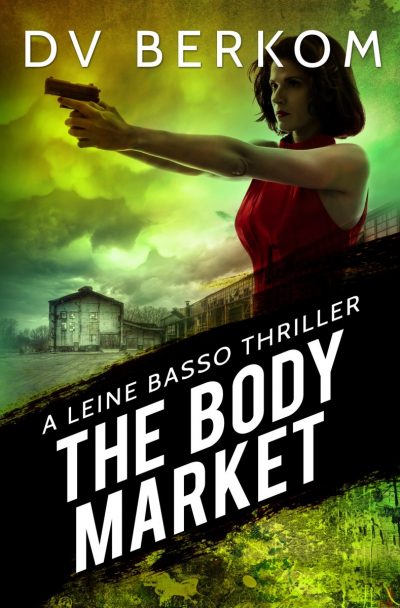 That’s a technical issue, not particularly relevant to this review, however. To be honest, when I got the first book, I was expecting more globetrotting assassinations, and less stuff more befitting a PI or homicide detective, which is really what the first two books are more like. Things perk up considerably in #3, with Leine having to handle life south of the border; you’ll probably be crossing Mexico off your list of potential destinations by the time you’re done there. They do seem – consciously or not – to become more exotic and international, as they go on. #4 and #5 take place almost exclusively abroad, to the point that I felt a bit sorry for Leine’s boyfriend, who must barely see her!
That’s a technical issue, not particularly relevant to this review, however. To be honest, when I got the first book, I was expecting more globetrotting assassinations, and less stuff more befitting a PI or homicide detective, which is really what the first two books are more like. Things perk up considerably in #3, with Leine having to handle life south of the border; you’ll probably be crossing Mexico off your list of potential destinations by the time you’re done there. They do seem – consciously or not – to become more exotic and international, as they go on. #4 and #5 take place almost exclusively abroad, to the point that I felt a bit sorry for Leine’s boyfriend, who must barely see her!